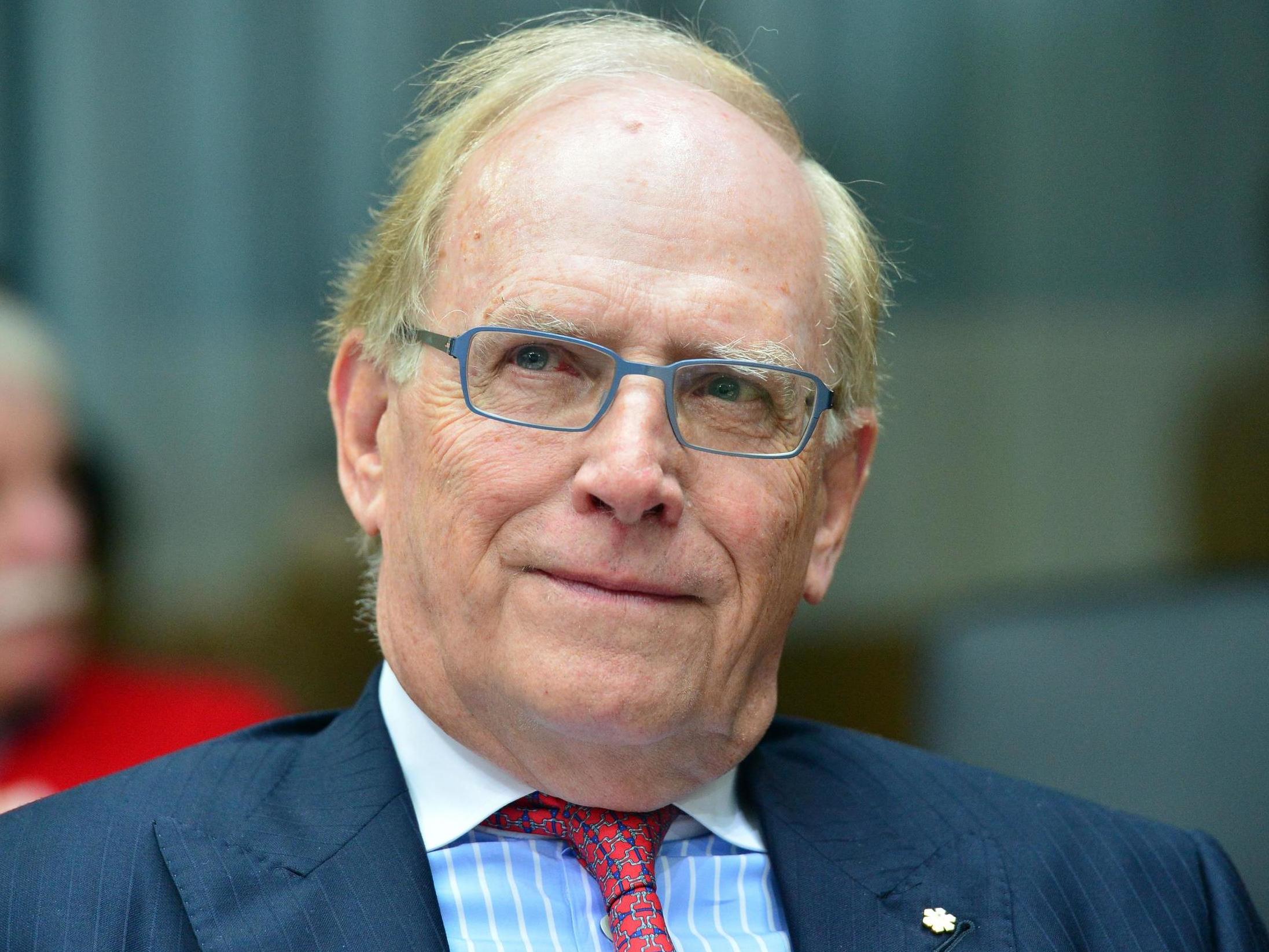Russia scandal won’t be last instance of state-sponsored doping, says Richard McLaren
Exclusive: The investigator whose report detailed Russia’s programme of institutionalised doping believes athletics could be stung by a similar scandal in the future

Richard McLaren, the Canadian lawyer whose Wada-commissioned report laid bare lurid details of state-sponsored Russian doping between 2012 and 2015, believes athletics could be stung by a similar scandal in the years to come.
McLaren’s report, published in July 2016, concluded that more than 1,000 Russian athletes across over 30 sports had benefitted under the country’s systemic doping programme at elite events such as London 2012 and Sochi 2014.
Although Russia initially claimed that McLaren’s findings only amounted to allegations, the country has since acknowledged the report. In May 2018, sports minister Pavel Kolobkov told the International Olympic Committee (IOC) that Russia was “ready for a dialogue” over the issue, while President Vladimir Putin admitted there had been “instances of doping”.
With the fallout from the scandal still continuing as the sport attempts to repair its credibility – the International Association of Athletics Federations (IAAF) is due to meet next week to vote whether to lift Russia’s ongoing suspension – McLaren fears this won’t be the last instance of state-sponsored doping.
“I’m sure somebody will try to do that – who it might be I don’t know – but if it’s been tried once, and it worked for a while, then it could [happen again],” he told The Independent.
Concerns have been raised over the high number of long-distance runners from Kenya to have returned positive drugs tests in recent years, leading to suggestions of institutionalised doping.
A 2018 Wada report discredited this theory, concluding that doping practices among Kenya’s athletes was “unsophisticated and uncoordinated”, though McLaren said the organisation was following up on information he had been passed during his own investigation into Russia.
“Kenya has been investigated by Wada and they found a lot of problems,” he said. “They’re following the work we uncovered but didn’t go to because it was athletics and Russia we were dealing with.”
McLaren also expressed his “disappointment” at the IOC’s response to his 2016 report and the governing body’s decision to ignore Wada’s subsequent recommendations – including the call to ban Russia from the Rio Olympics. Instead, the IOC “passed the buck” to the individual international federations in deciding whether to allow Russian athletes to compete at the 2016 Games.
“I was asked to do a particular type of investigation, do a job and provide a report,” McLaren said. “That’s what I did.
“They [the IOC] didn’t show strong leadership in dealing with the problems that were uncovered. When I reported in July 2016, ahead of Rio, Wada read the report and recommended that Russia be banned from going to the Olympics. Then the IOC dragged their feet for a couple of weeks and set the scheme up that they did set up. They deferred, they passed the buck on to the international federations to come up with the rules.
“That didn’t seem to me to be a very appropriate way to deal with the situation.”
When asked if the relevant governing bodies had improved their act in the wake of the Russian doping scandal, McLaren said: “I think they’re working on it. Wada is trying to change, it’s really having a struggle doing that.
“I think the governmental structure of Wada seems to me not to work anymore … it needs a fundamental overhaul.”
McLaren also revealed that he remains in contact with Grigory Rodchenkov, the former Moscow laboratory director turned whistleblower who oversaw Russia’s elaborate state-sponsored doping programme. His revelations preceded McLaren’s investigation and were confirmed by the report.
“He’s had some dialogue with the international federations as they’ve been processing the information that came out the work and the work of the Wada investigations team,” he said.
“He’s certainly still active and still interested. He’s been taking all his diaries and putting them together and is probably writing a book, though I don’t know for sure. I know he’s spending a lot of time in his diaries – but then what else do you do when you’re isolated and can’t use the phone, can’t use a computer, can’t speak to your family. The only two people you see are your minders. You might as well go through your diaries. It’ll be interesting.”
Join our commenting forum
Join thought-provoking conversations, follow other Independent readers and see their replies
Comments
Bookmark popover
Removed from bookmarks